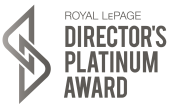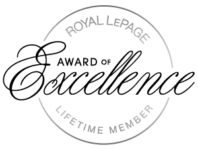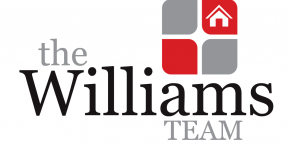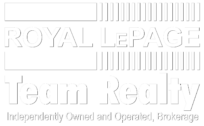Protect Yourself Against Real Estate Fraud and Identity Theft
 What is real estate fraud?
What is real estate fraud?
There are many different types of real estate fraud, but the two that consumers should be aware of are mortgage fraud and title fraud.
Mortgage fraud occurs when an individual intentionally provides inaccurate, fraudulent or incomplete information to a lender in order to secure a mortgage that they might not otherwise be granted. This could include anything from an individual claiming to have a higher income than they actually have to providing falsified proof of identification or a falsified appraisal of the property.
Title fraud occurs when a fraudster assumes the identity of an individual homeowner and then uses that false identity to pose as the homeowner. They could then assume the title on the home, sell the property or obtain a mortgage on that property or other properties in the homeowner’s name.
How big a problem is mortgage fraud in Canada?
Mortgage fraud is a crime that the banking industry, police, governments and other organizations involved in real estate transactions take very seriously. Although there is no central organization that collects statistics nationally the number of incidents is increasing dramatically.
How do I protect myself from becoming a victim of mortgage fraud?
Protect your personal information from identity thieves:
- Do not give out personal information on the phone, through mail or over the Internet unless you have initiated the contact or know with whom you're dealing.
- If it sounds too good to be true, it probably is - before you reveal any personal information, find out how it will be used and if it will be shared.
- Pay attention to your billing cycles. Follow up with creditors if your bills don't arrive on time.
- Guard your mail. Deposit outgoing mail in post office collection boxes or at your local post office. Promptly remove mail from your mailbox after delivery. Ensure mail is forwarded or re-routed if you move or change your mailing address.
- Minimize the identification information and number of cards you carry.
- Keep items with personal information in a safe place. An identity thief will pick through your garbage or recycling bins. Be sure to tear or shred receipts, copies of credit applications, insurance forms, physician statements and credit offers you get in the mail.
- Give your Social Insurance Number (SIN) only when absolutely necessary. Ask to use other types of identification when possible.
- Don't carry your SIN card; leave it in a secure place.
- Check your credit report regularly to ensure there are no discrepancies.
- Reviewing your credit report can help you find out if someone has opened unauthorized financial accounts in your name. There are three credit reporting agencies in Canada: Equifax Canada, Northern Credit Bureaus Inc. and TransUnion Canada. You can request free copies of your credit report from credit reporting agencies by mail. Online versions of reports are also available for a small fee.
Incidents of real estate title fraud are increasing in Canada and homeowners and lenders are proving to be irresistible targets for fraud artists. The role of legal professionals and title insurance companies has become even more critical in the fight to detect and prevent title fraud.
- Homeowners and lenders can protect themselves by obtaining a title insurance policy
- You can also conduct a property search at your province land registry office to ensure that the title to your home is in your name.
A Typical Example of Real Estate Fraud
- A fraud artist steals the identity of the legitimate owner of the property.
- The fraud artist sells the property to an unsuspecting purchaser who also obtains mortgage financing.
- The unsuspecting purchaser either moves in or attempts to move into the property.
- The legitimate owner is faced with defending his/her interest in the property, including evicting the unsuspecting purchaser, and having their title subject to any mortgages the unsuspecting purchaser has put on the title.
This is an example of a fraudulent transfer and mortgage, but other types of fraudulent transactions also occur:
- Spousal Impersonation FraudThis type of fraud can occur when one spouse mortgages a property for their own benefit using an accomplice to impersonate their spouse.
- Fraud by Breach of Undertaking
Fraud, unfortunately, is not limited to rogue clients. Fraud can also occur by way of a lawyer’s/notary’s breach of an undertaking to pay off and obtain a discharge of a mortgage. That is, the seller’s lawyer or notary absconds with the funds intended to be used to pay off the seller’s pre-existing mortgage. Accordingly, while title to the property has been transferred into the name of the new purchaser, the property remains subject to the prior mortgage.
Homeowners and lenders can protect themselves by obtaining a title insurance policy. The coverage provided in residential title insurance policies helps protect both innocent homeowners and lenders who might otherwise face huge financial losses resulting from title fraud. Generally, the losses from these types of frauds are catastrophic with homeowners paying thousands of dollars in legal fees to defend their title, and lenders often losing the full amount of their mortgage. Title insurance can protect both homeowners and lenders against losses resulting from most forms of real estate title fraud.
It is Important to note that thieves often target properties that are mortgage free and where owners have a good credit rating. This allows them to apply for a significant mortgage.






The trade marks displayed on this site, including CREA®, MLS®, Multiple Listing Service®, and the associated logos and design marks are owned by the Canadian Real Estate Association. REALTOR® is a trade mark of REALTOR® Canada Inc., a corporation owned by Canadian Real Estate Association and the National Association of REALTORS®. Other trade marks may be owned by real estate boards and other third parties. Nothing contained on this site gives any user the right or license to use any trade mark displayed on this site without the express permission of the owner.
powered by WEBKITS


 What is real estate fraud?
What is real estate fraud?

